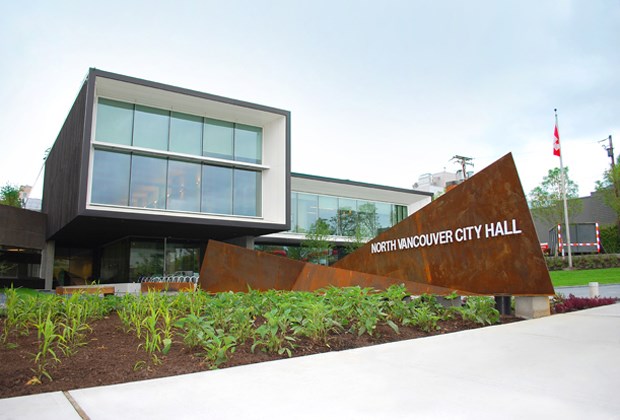City of North Vancouver council has lumbered over the first legislative hurdle on its way to approving a 30-year plan encompassing land use, development, health and the economy.
Council voted 5-2 Monday night to give the CityShaping official community plan bylaw first reading and send it to a public hearing due at the end of September.
Council, staff and community volunteers have been working on the plan for the last three years, bringing in more than 4,500 pieces of public input.
The plan, which has yet to be passed, foresees densification along the Lonsdale Avenue corridor and in Lower Lonsdale and a population of 68,000 by 2041.
Click here to see the draft plan.
While the draft OCP spans dozens of topics over more than 100 pages and eight chapters, much of the discussion in recent weeks has been about how much growth should be allowed in Moodyville, which has undergone massive changes since council’s approval of the Low Level Road project and Port Metro Vancouver’s approval of Richardson International’s new bank of grain silos.
Neighbours impacted by the projects had been lobbying council to adopt city staff’s recommendation to allow mid-rises below East Third Street to allow the area to be redrawn. Opponents, largely from the north side of Third, lined up to thank council for scaling back density in a July 7 vote to cap development at townhouses and triplexes.
Coun. Craig Keating introduced a last-ditch motion to put staff’s recommended density back in the plan, but only found supporters in Coun. Linda Buchanan and Mayor Darrell Mussatto and the vote went down to defeat.
Coun. Rod Clark said he applied the same principles to Moodyville he has to the rest of the city.
“I believe we should continue that go-low, go-slow approach. I have heard a lot of divergent opinions, specifically on the Third Street down to First Street area,” he said, noting he too lives there. “Quite honestly, I’ve taken a fair bit of heat in the last couple of weeks from some residents who don’t understand my viewpoint. In fact, they don’t even want to discuss my viewpoint. They have dollar signs in their eyes and it’s as simple as that.”
Coun. Guy Heywood also took issue with the amount of growth staff had initially recommended in the plan.
“It seems to come from a planner point of view or academic view that growth is necessary and should be embraced, whether or not there are benefits for the people who live in the community that are enduring this growth,” he said, adding that he was disappointed so much of discussion had been hijacked by Moodyville’s issues after being “completely blindsided by the great wall of Richardson.”
Coun. Craig Keating reminded council that the OCP is a 30-year plan and that it would be antithetical to create a plan that only takes into account the infrastructure, needs and wants of today. He went on to counter popular claims that the city is growing too fast.
“I certainly don’t think members of council should be giving rein to notions that we are now suffering from out-of-control development. The census will tell you that over the last 10 years, from 2001 to 2011, we the city grew by nine per cent, which is less than one per cent per year. It is one of the lowest rates in the Lower Mainland,” he said.
Mayor Darrell Mussatto, too, stressed that council needs to look at the bigger picture and come up with a plan that won’t burden future generations with the problems of today.
“We have to reduce the amount of coal, oil and gas that we use so that we can have a quality of life for those who come after us. It means changing, a little bit, doesn’t it? I wish we could all have single-family homes. That’s just not achievable anymore, so people are going to live differently. We can find a good way to live, or even better way of living, in a very sustainable way for future generations,” he said. “Change will come. For some, it will be more difficult than others but I can tell you we have to change, either by design or by default.”
Keating and Mussatto voted against the OCP bylaw’s first reading in protest over the Moodyville issue and the limiting of single-family lots to either a coach house or secondary suite, but not both.
Council is tentatively expecting to hold the public hearing on the draft OCP on Monday, Sept. 29, allowing members of the public to question staff and offer up five minutes of comment for council members to consider before casting their final votes in October.



